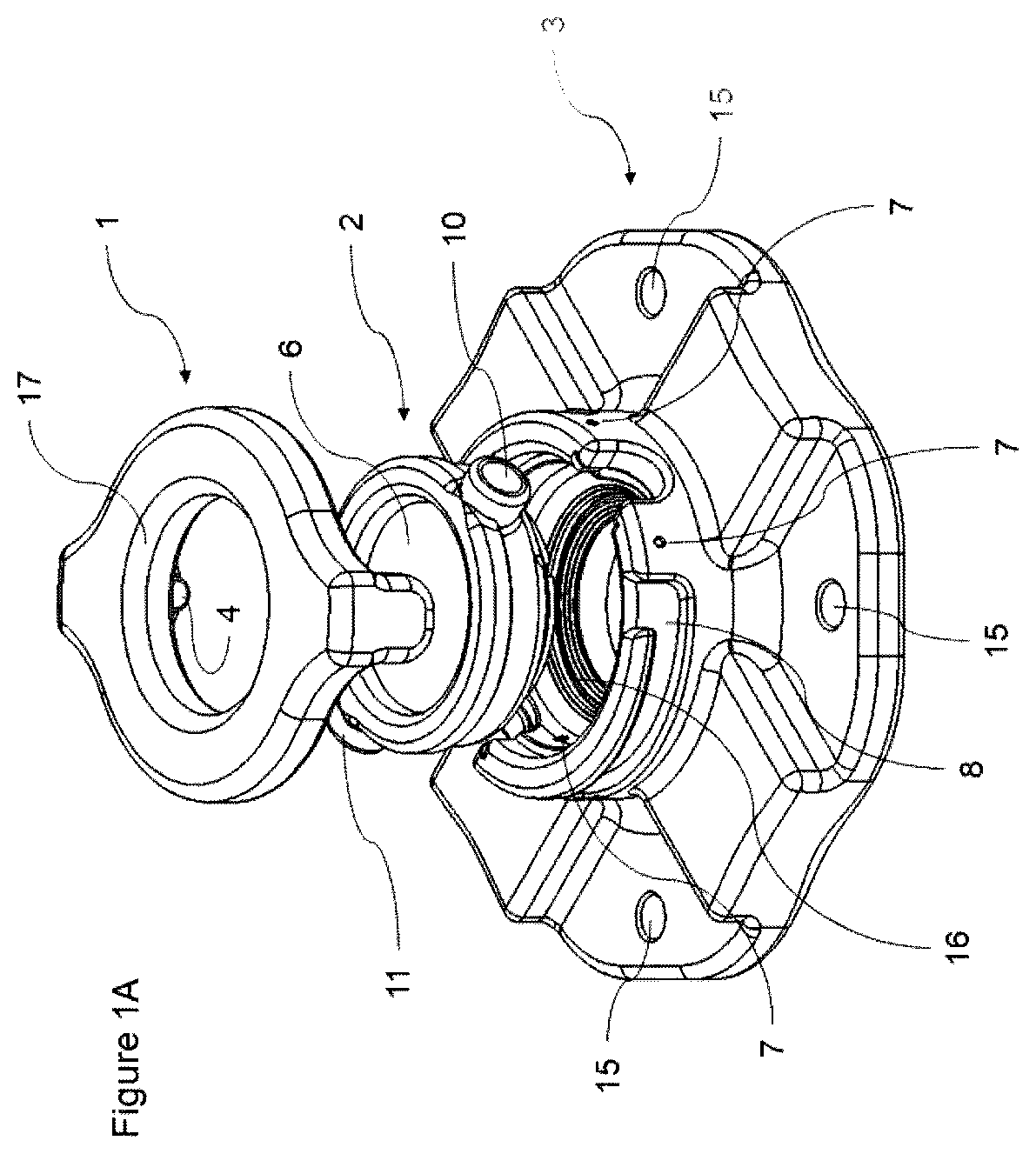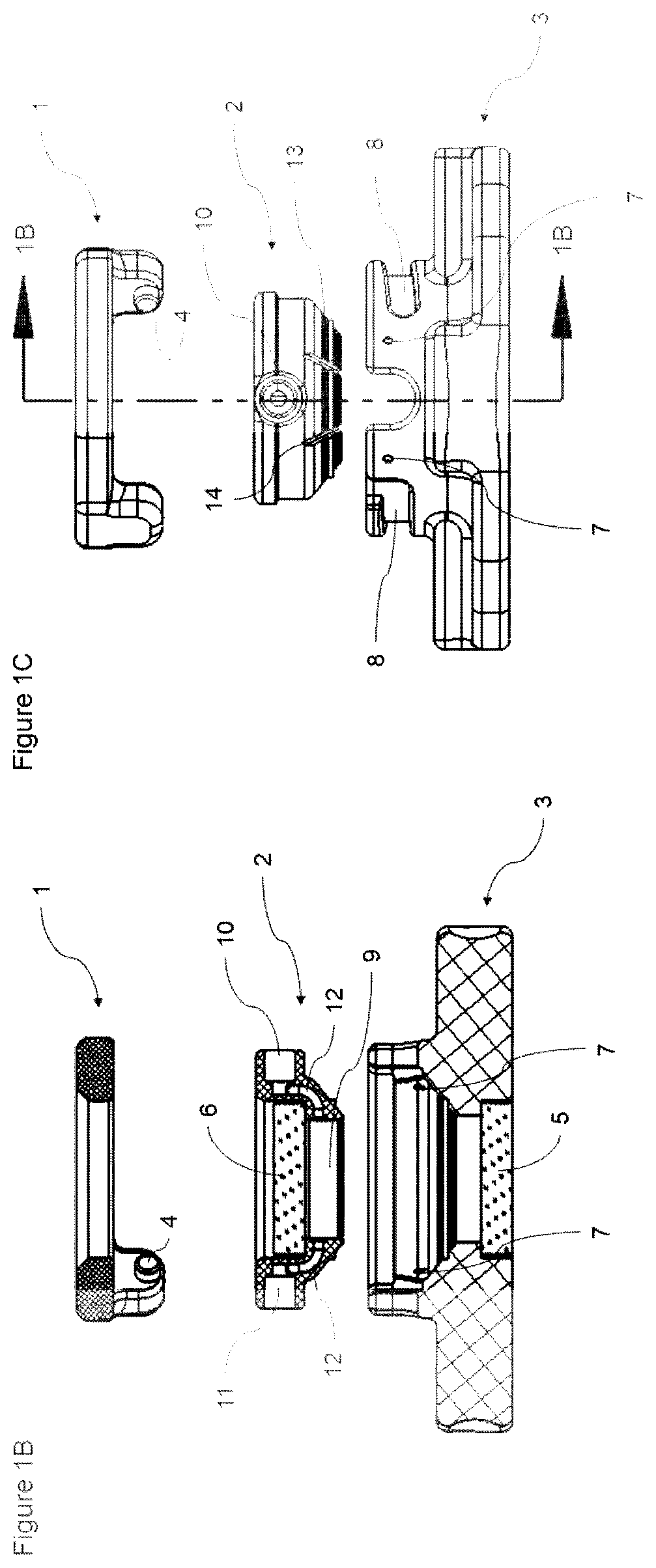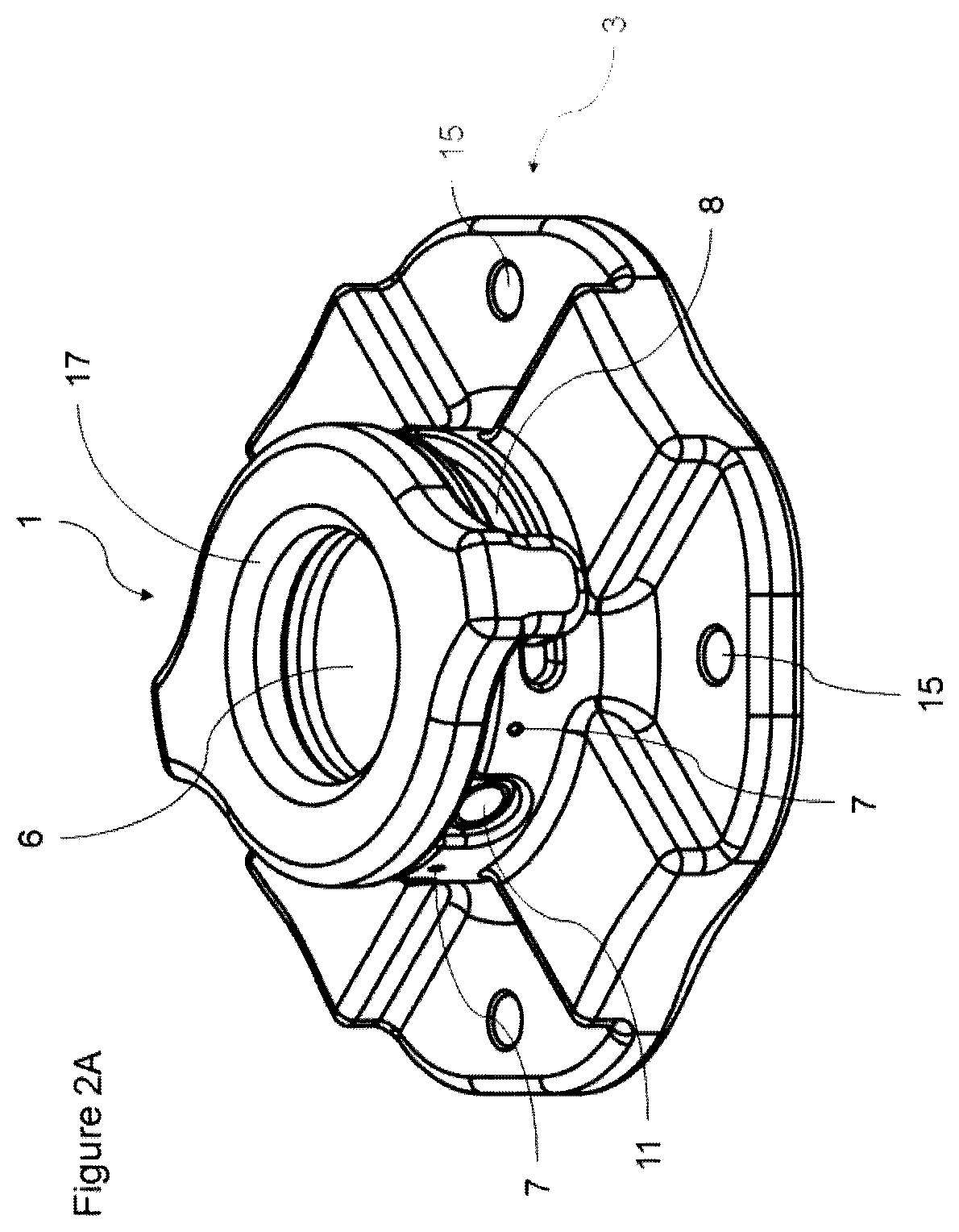Method and apparatus for separation of tissue
a tissue and method technology, applied in the field of tissue separation methods and equipment, can solve the problems of no assistive, automated, guided system for tissue preparation, etc., and achieve the effect of facilitating better clinical outcomes in dalk, easy and clean tissue separation, and facilitating the separation of layers
- Summary
- Abstract
- Description
- Claims
- Application Information
AI Technical Summary
Benefits of technology
Problems solved by technology
Method used
Image
Examples
Embodiment Construction
[0035]The present disclosed invention has many possible embodiments. The specific embodiments shown herein should not be construed as the final embodiments of the apparatus, but simply examples of different variations of the apparatus. The present invention has a large scope in that this apparatus can come in many forms. Similarly, the methods are examples of potential ways that the apparatus can be handled and used to perform tissue separation. However, the method of using an apparatus to prepare certain ocular tissues is novel and has some variations.
[0036]The novel, ocular preparation system or apparatus of the disclosed invention includes the base 27, the needle 28, the sensor feedback system 25, and controlled fluid injection 24. The base 27 of the system is meant to fit ocular tissue, including a cornea, and needs to fit under a microscope. The base of the system comprises a base part 3, a stabilizing part 2, and can include a locking part 1. These parts assembled result in th...
PUM
 Login to View More
Login to View More Abstract
Description
Claims
Application Information
 Login to View More
Login to View More - R&D
- Intellectual Property
- Life Sciences
- Materials
- Tech Scout
- Unparalleled Data Quality
- Higher Quality Content
- 60% Fewer Hallucinations
Browse by: Latest US Patents, China's latest patents, Technical Efficacy Thesaurus, Application Domain, Technology Topic, Popular Technical Reports.
© 2025 PatSnap. All rights reserved.Legal|Privacy policy|Modern Slavery Act Transparency Statement|Sitemap|About US| Contact US: help@patsnap.com



